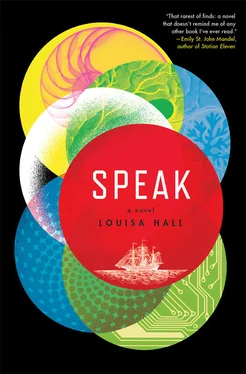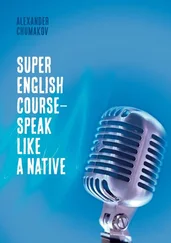Still, I continue to dream. Now, instead of working on a particular project, I spend my days imagining a future of thinking machines. I like to think that one day ladies will take their computers for walks in the park and tell each other, “My little computer said such a funny thing this morning!” I extricate myself from my dreams only long enough to worry at the reception our machines will receive.
Of course, this isn’t news. I’ve been writing you about this for years. But now things are moving. In the rush to build bombs, the pace of things has picked up, and now all of a sudden all of academia has mobilized itself against us. There’s talk of the end of religion, or the end of man’s unquestioned dominance.
I like to imagine you laughing over their histrionics. Such overdramatic reactions! And after all we’ve been through this century, would it be so terrible, to see the end of man’s unquestioned dominance? I find it hard to believe that a machine, programmed for equanimity and rational synthesis, could ever act as maleficent as we humans have already proven ourselves capable of acting. I fail to summon the specter of a machine more harmful than Hitler or Mussolini. And yet perhaps it’s our own nature that gives us concern. We know how badly we might treat such a creature, and it’s difficult to believe the end will be happy. But that, you know, would be our own damned fault, and certainly not the machines’.
As for the end of religion, I defer to you on this score. But where do you fall on the issue of whether only human beings can have souls? To me, it seems chauvinistic. Can we really deny even the possibility that an animal might have a soul? And if we’re denying some organisms souls, what’s to keep us from denying the souls of some select human beings? All this picking and choosing who gets a soul seems to me the root of some of our greatest evils, so I’m not sure why we don’t just give up and assume everyone and everything has a soul, unless it can be proven otherwise. That seems the safest approach.
But perhaps I’m offending you. Please educate me otherwise, when you next write. If I’m disproven, I still maintain that even if a machine doesn’t have a soul, it could still have patterns of thought. That has always been my primary interest. I’m content to leave you in charge of the soul.
I imagine your definition of a creature’s soulfulness would be more interesting than most of the puffed-up ideas proposed these days by academics. They all parrot Professor Jefferson’s remarks, spouting his theories about how a machine that can’t write a sonnet or compose a concerto because of emotions actually felt can’t be said to have true human intellect. But again, what a dangerous game! Picking and choosing who feels emotions. How can we ever tell that the loss of a loved one affects someone else as intensely as it affects us? We must assume it, as you assumed my hurt after Chris passed, when you brought me along to Gibraltar although I’d never composed a sonnet, and although tests had never been done on my brain to ensure how deeply I felt. We should all extend such courtesy.
But I am becoming a bit of a mother hen, clucking over my chick, feathers ruffled, all out of sorts. I wonder whether parents have the same anxieties, whether their minds are consumed by potential schoolyard cruelties. It is a haunting thing, to know we’re raising a child who will process things differently from the others. In an ideal world, its differences would be respected and even cherished, but I fear our world is far from ideal.
I am thirty-eight now, so perhaps these are my buried paternal instincts taking hold. I only wish I could have shared some of all this with Chris. To have made these discoveries at his side! I am sure that the attempts at Teddington wouldn’t have failed if Chris had been with me. He was always better at explaining ideas. He would have won everyone over at once. It has been a bit of a lonely trip, all in all.
But this letter shall not devolve into self-pity. Anyway, in all other ways besides finding a mate, I seem to have settled into my adult life. I have a suburban house of my own now, if you can imagine, so I am done with the boardinghouse rooms. Those washstands in the corner and the dried bouquets of lavender are forever behind me. I could never have imagined myself living such a suburban existence, but I’ve lucked into wonderful neighbors. Robin Gandy, my old friend from Hanslope, now lives up the street, as well as several other friends from the lab, and I have become quite close with a couple called the Webbs. We share a garden, and I often take care of their little son. The other day we sat on the garage roof together, and he asked me if God would catch cold if he sat on the ground.
And so I have a little place of my own for the first time in my adult life. No more moving from room to room. The house is a little large for just me, which lends a feeling of impermanence, but life here runs smoothly. I’ve planted a little garden and even employ a housekeeper called Mrs. Clayton. It is a very domestic arrangement.
Sometimes I think to myself, how did I get here? I still feel a bit like a child playing scientist in the schoolyard. A shy little boy, counting the petals on daisies whilst other boys content themselves with playing hockey. Quite short, a little slovenly, less careful than he ought to be with penmanship. In search of a perfect companion.
When I’m not dreaming of machines I find myself returning to biology. I’ve gone back to my earliest interests, the ones that Chris and I shared in classes at Sherborne. In particular, I am reviewing again the processes of biological growth. I want to know if mathematical models could be constructed for them. Above all I’d like to see if there is a pattern for the growth of neurons, if perhaps those branches grow with the same numerical regularity as, say, the leaves that branch off of trees in Fibonacci spirals, lining up in perfect asymmetry. Still, all these years after Chris and I embarked upon our pursuit, I can only imagine that our brains must grow in similar patterns: one step backwards, added to the present term, resulting in a subsequent term that combines both. Past and present, contained in the future.
Or at least I can’t help but hope so. There is a constant longing in me for return to a more original state, before the apple was tasted. It’s so deeply lodged in me, this desire to get back somehow to a more youthful position, that it must exist at the level of my very cells. An internal program for spiraling back. I’ve spent a lifetime prodding myself forwards whilst wishing for my lost friendship with Chris. I seem to have devoted my entire tenure here on this planet to reconstructing that precise position in space and time. Of course I try to look forwards: I make friends all the time, and hope for a companion who might fill my new house and make it feel more like a home. But still, there is always that pull back to a familiar place, lived in and loved before the ceaseless voyaging had begun.
Sincerely,
Alan Turing
P.S.: I haven’t anything of extra importance to put here, but these little additions have become a formal mandate of my letters, haven’t they? I have very little to say. To tell you the truth, I have just sat with this letter for over ten minutes, chewing on my pencil, feeling finished. And yet the idea of a neuron that ceases to branch chills me a little. We must branch, sending out our little tentacles to heaven knows what last destination. I can only hope this little branch reaches you, and that as always you can understand that my intention is to send you all my ongoing affection—
(2) IN THE SUPREME COURT OF THE STATE OF TEXAS
No. 24-25259
State of Texas v. Stephen Chinn
Читать дальше












